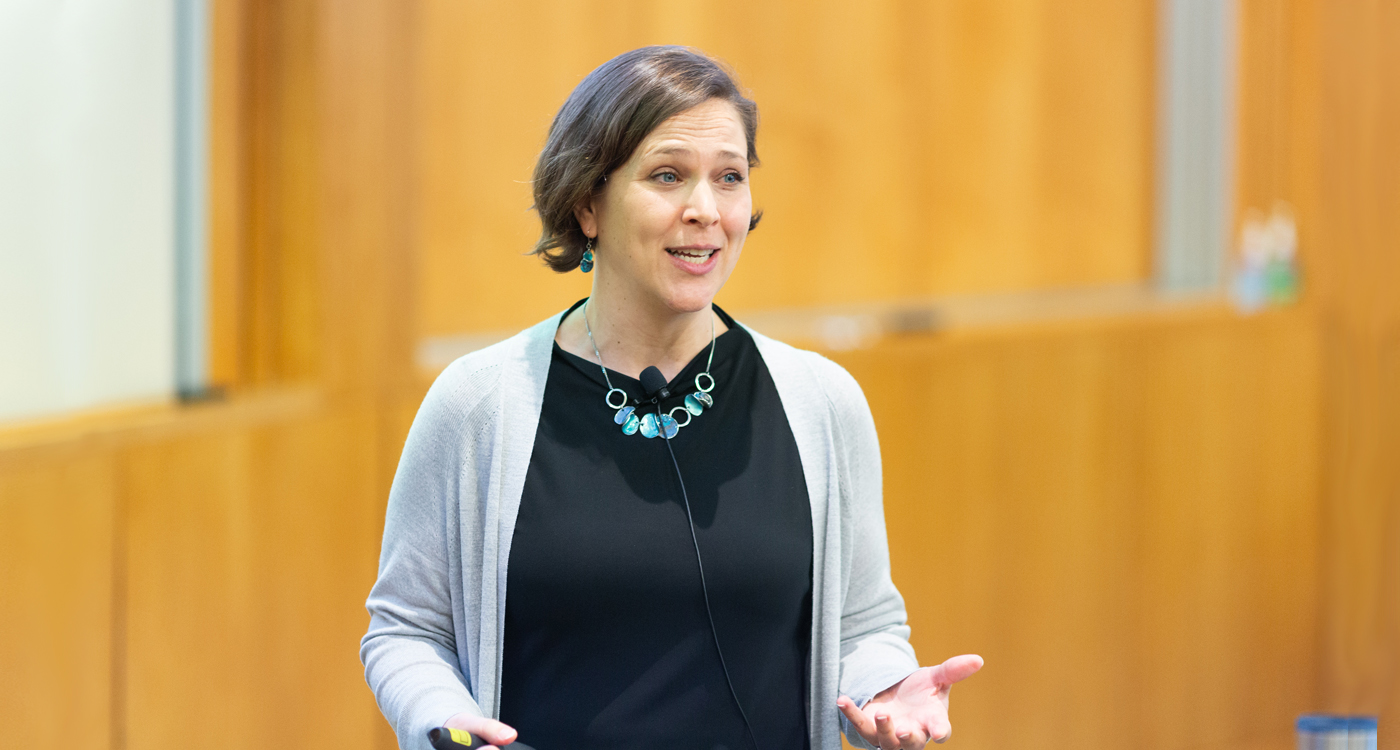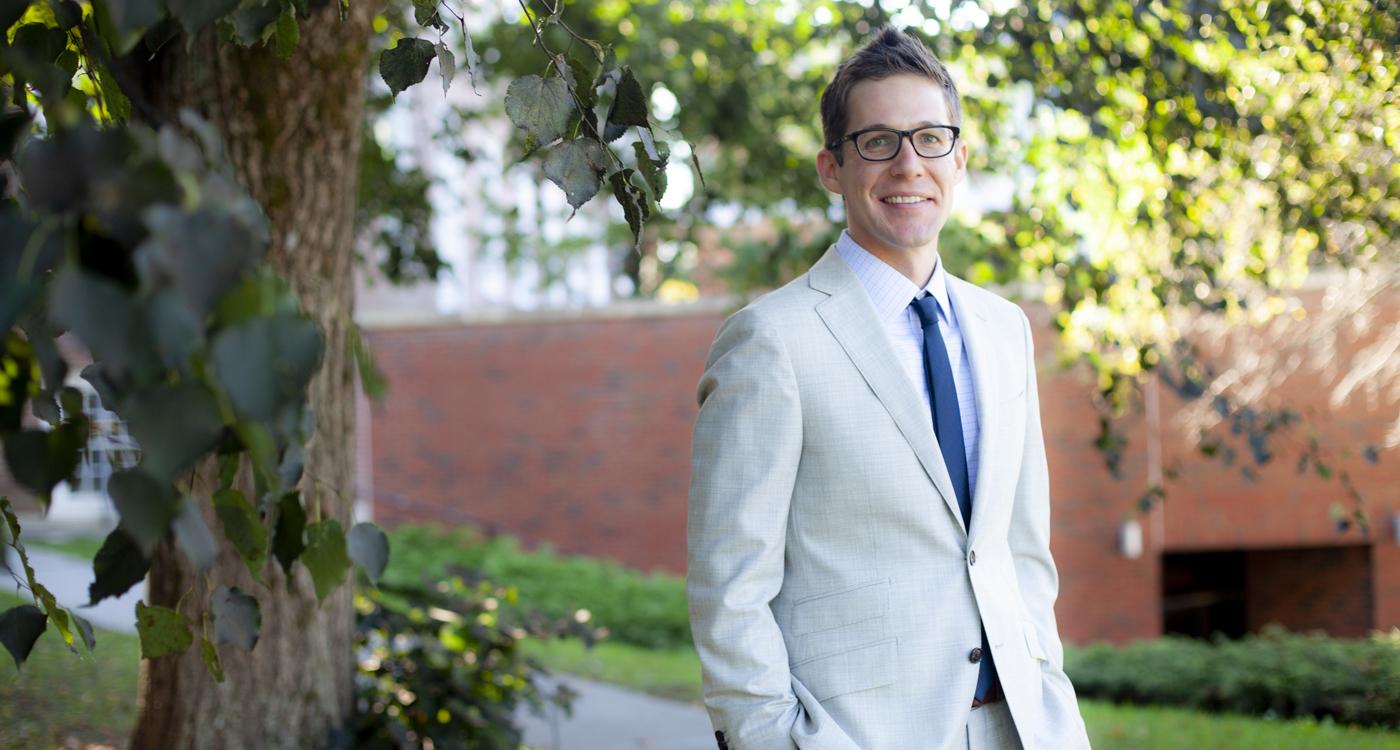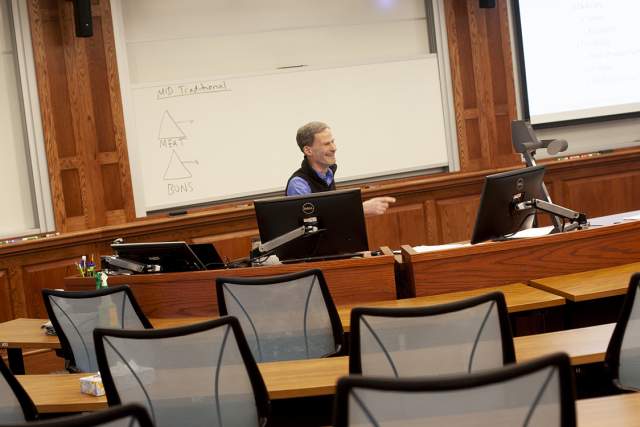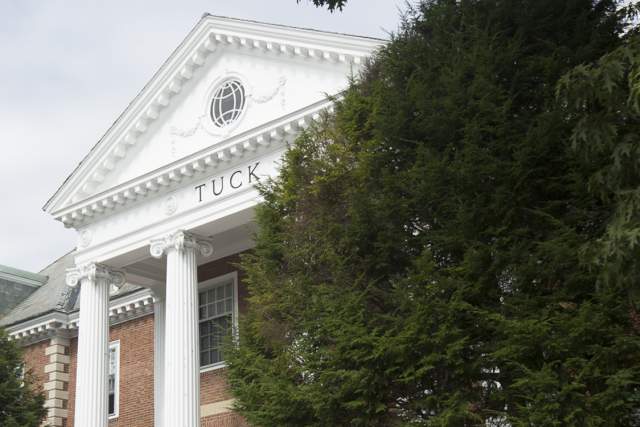Tuck Launches Virtual Faculty Research Chats
A new virtual series of research talks connects students with some of the rigorous and relevant knowledge created by Tuck faculty.

Professor and trade economist Emily Blanchard launched the series on April 14 with a talk on trade and global supply chains and how Covid-19 is impacting both.
The rich menu of co-curricular offerings at Tuck has a new addition: Faculty Research Chats. The virtual series launched on April 14 with Professor Emily Blanchard, a trade economist, presenting to nearly 120 students, via Zoom, about the interplay between global supply chains, trade wars, and the Covid-19 pandemic. The hour-long talk included a PowerPoint presentation and a question-and-answer session.

Associate Professor Daniel Feiler delivers a talk on April 28 on strategy and management.
“The research chat offered a welcome and surprisingly intimate opportunity to reconnect with our Tuck community,” Blanchard says. “Seeing the diverse mix of our students and colleagues through my Zoom window—geographically scattered yet intellectually together—reminded me how much I miss seeing, talking with, and hearing from our students every day.”
While Blanchard’s talk was about the one topic dominating global life these days, that won’t be the case with many of the other sessions. In the next chat, on April 28, Professor Daniel Feiler will discuss the hidden drivers of overconfidence. Feiler, a behavioral scientist whose research explores the psychology of judgment and decision making and the role it plays in organizational behavior and management science, is excited to share his research with students outside of class, and shed light on a topic that’s regularly misunderstood. “We often associate overconfidence with arrogant hot-heads,” he says, “so I’ll talk students through how there is an important cause of overconfidence that has nothing to do with arrogance, and that it can sneak up on us, even when we have the best intentions.”
Using my research to frame the situation left me with a new—and more hopeful—perspective in this unsettling time.
Students at Tuck have long had personal guidance through the faculty’s rigorous and relevant research, via the unique Research-to-Practice seminars that are part of the second-year elective curriculum. In those courses, small groups of students dive deeply into the knowledge creation process with professors, learning about research methodologies and the cutting-edge ideas that come from scientific inquiry. The Faculty Research Chats extend those opportunities to all students, and offer the faculty a chance to reflect on their own work and how it fits into the current business environment.
“I used the presentation as a nudge to organize and put into words many of the disparate ideas I've been having about how Covid is changing the global economy and its politics,” Blanchard explains. “Using my research to frame the situation left me with a new—and more hopeful—perspective in this unsettling time.”
With a wide representation across the academic areas, the Faculty Research Chats will run through the spring term, with the following schedule:
- Tuesday, April 28 — Dan Feiler (Strategy and Management)
- Monday, May 4 — Phil Stocken (Accounting)
- Thursday, May 7 — Rob Shumsky (Operations and Management Science)
- Tuesday, May 12 — Praveen Kopalle (Marketing)
- Monday, May 18 — Katharina Lewellen (Finance)

